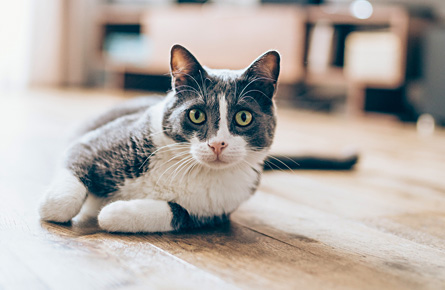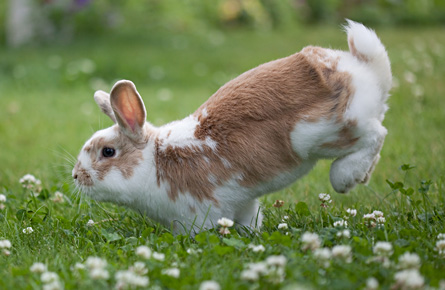Cats reach reproductive maturity rapidly; we follow the RSPCA and Cats Protection guidelines recommending neutering both female and male cats around four months of age. Female cat neutering involves removing their ovaries and uterus. Castrating a male cat involves removing both of their testes.
 Cat neutering or spaying:
Cat neutering or spaying:
-
Prevents unwanted pregnancies and womb infections
-
Can help prevent tumours and breast cancer
-
Can also help prevent testicular cancer and prostate disease
-
Assists in preventing roaming and aggressive behaviour
It’s normal to neuter! 86% of owned cats in the UK are neutered*
*PSDA Paws report 2020
Should I let my cat have one litter before spaying her?
This happens to be a common question, and there are no known health benefits to letting your cat have a litter; this is also the same for dogs and rabbits.
General anaesthesia before cat neutering
A general anaesthetic is required for cat neutering; here at Gower Vets we have measures in place to ensure their safety during the procedure. A dedicated Registered Veterinary Nurse (RVN) will monitor your pet throughout their surgery and recovery. All anaesthesia comes with some form of risk; however, these are very low, especially neutering, as pets are often young, fit, and healthy when having this procedure.
Risk levels of anaesthesia increase with a pet’s age, certain breeds and if your pet has any underlying health conditions. We can perform a pre-anaesthetic blood test before your pet’s surgery to detect any underlying illnesses; this can be discussed when booking in for the procedure and on the day of their surgery. Your pet will receive a premedication to relax them and will also receive two types of pain relief. Rest assured the Gower team will be with your pet every step of the way.
Your pet will stay the day with us
On admission, we will discuss the cat neutering procedure and go through the consent form. Please note we must gain a signature from the registered owner (over 18) or authorised agent on the consent form. Your dog, cat or rabbit will be admitted as a ‘day patient’, and they will be discharged later that day once our team are happy with how your pet has recovered. During your pet’s discharge appointment, the team will go through everything you need to know about caring for your pet after their surgery and their pain relief medication. We are always at the end of the telephone for you and your pet, so please contact us on 01792 299111 if you have any further questions once you have your pet settled back at home.
Please bring your cat in a secure cat basket with a blanket that smells of home. Cats are territorial creatures who prefer to stay in areas familiar to them; click here to read how you can prepare for travelling to us with your cat.
Pet Health for Life Plan & Cat Neutering
Gower's Pet Health for Life Plan members can claim a 10% discount off any cat neutering procedure. Our health club offers preventative health, and you could be saving each year on what you spend on your pet treatment wise.
Cat Neutering Frequently Asked Questions
What is cat neutering?
Cat neutering is a routine surgical procedure that prevents reproduction. In male cats, this involves removing both testicles (castration), while in female cats, both the ovaries and uterus are removed (spaying). Neutering not only helps control the cat population but also provides health and behavioural benefits.
At what age can my kitten be neutered?
We recommend neutering kittens from around four months of age to prevent early pregnancies and reduce health risks. If you adopt or rescue an older cat, they can still be neutered at any age, provided they are healthy enough for surgery.
How long is the recovery period after neutering?
- Male cats typically recover within 5 to 7 days and should rest at home for a few days.
- Female cats need a longer recovery period of around two weeks.
We will provide detailed aftercare guidance to help your cat heal comfortably.
What are the benefits of neutering my cat?
Neutering has numerous health and behavioural benefits, including:
- Preventing unwanted pregnancies and reducing the stray cat population
- Lowering the risk of testicular cancer in males
- Reducing roaming tendencies, decreasing the risk of injury or disease
- Minimising spraying and territorial marking
- Preventing uterine infections and phantom pregnancies in females
Should my cat have a litter before being spayed?
It is a common misconception that cats should have one litter before spaying. There are no known health benefits to this. In fact, early spaying helps prevent reproductive-related health issues and reduces the number of unwanted kittens.
What does my cat need for the neutering procedure?
Your cat will receive a general anaesthetic, and a Registered Veterinary Nurse (RVN) will monitor them throughout the procedure to ensure their safety. We also provide pain relief to keep your cat comfortable. In some cases, we may recommend a pre-anaesthetic blood test to check for any underlying health conditions.
Book your cat’s neutering appointment at Gower Vets today!
Further reading:







